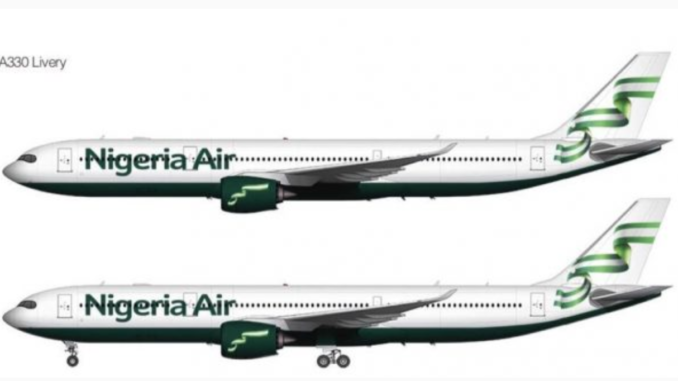
FOUR months after putting the national carrier project on hold, the Federal Government is making a fresh push to kick-start it. In the budget breakdown presented by the Minister of Budget and National Planning, Senator Udoma Udo Udoma, it earmarked N8.9billion for its take-off in the 2019 budget proposal. This is broken down to an initial N8 billion for working capital, N500 million for the appointment of transaction advisers and another N200 million for consultancy services.
If we harboured any anxieties about the wrong-headed approach of the aviation ministry to the national carrier issue, the events of the last six months have no doubt validated them. It started with the knowledge that the logo was actually designed by foreigners; then followed questions about the $8million which the ministry claimed to have sunk into the design of the logo and brand name amidst allegations that no such funds were provided for in the budget. This came shortly after Hadi Sirika, minister of state for aviation, unveiled the logo of the new carrier – Nigeria Air – at the Farnborough International Airshow in London, in July 2018. The crunch would finally come in September when the Federal Executive Council, citing the ministry’s inability to get investors to take up the 95 per cent stake in the carrier, opted to suspend the initiative indefinitely.
The provision in Budget 2019 may have meant to correct those initial defects. By making provision for the appointment of transaction advisers and for consultancy services six months after that high-octane outing, the government appears to have since resolved to set things in order. Not so however is the huge provision for working capital at a time basic technical issues needed for effective take-off have neither been properly articulated nor addressed.
The plausible suggestion is that the Federal Government has little need for a proper business case for prospective investors since it has a ready pool of taxpayers’ funds to draw from.
That is not the way to go.
To begin with, if we understood the justification for a national carrier at this time, it is on the premise that the initiative will be largely private sector-driven with government acting as a facilitator or at the very best, a minority shareholder, lending its sovereign muscles only when it becomes necessary. The current situation in which the Federal Government continues to plod on with the private sector merely reduced to playing the spectator is certainly unhelpful.
As it stands, it is neither late nor impossible to push for the buy-in of private investors – foreign and domestic. Even if merely at the exploratory level, bringing private investors on board can only prove beneficial in the quest to evolve a new template of ownership for the national carrier, particularly one that does not burrow a needless pit into the already strained treasury. Considering its critical nature, such partnership will be worth every dime and attention.
In this, we must advise that the resort to playing up the sentiment of having a national carrier, or as is currently the case, throwing money around hoping that things will somehow fall in place will, certainly not do. What will help is a sound business case for the project.
And, should the National Assembly proceed to approve the N8.9billion, this, in addition to the $8 billion already spent, must be with the knowledge that they are seed money, to be fully accounted for when the carrier finally takes off.
END

Be the first to comment